WEF reform message likely to fall on deaf ears
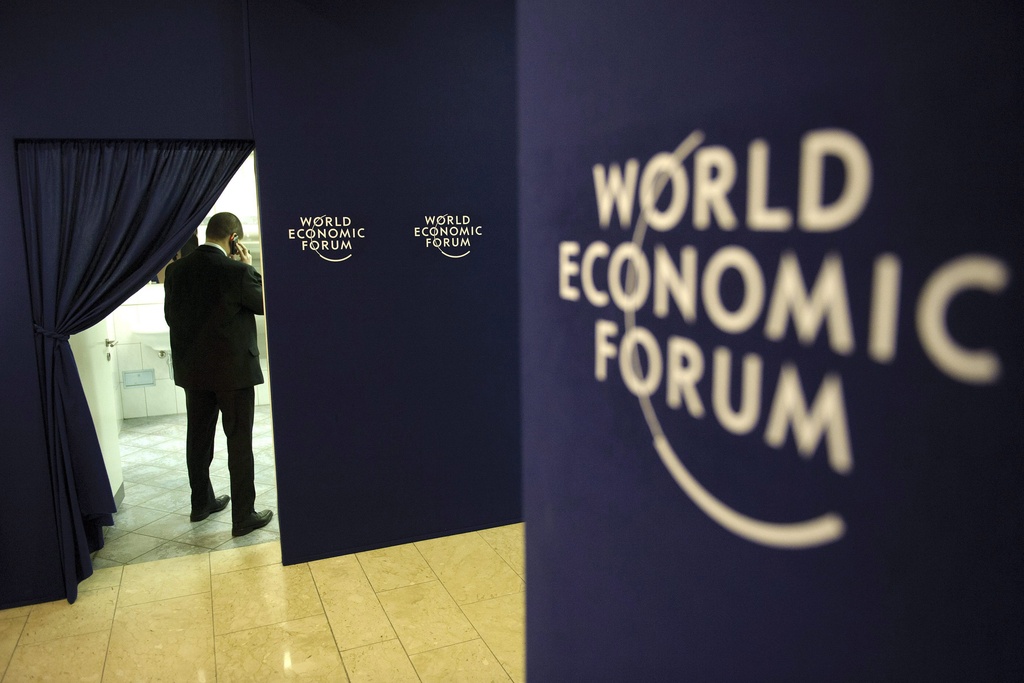
Business leaders and politicians at this year’s World Economic Forum (WEF) annual meeting will be urged to change their ways and mend broken bridges with society.
But critics doubt whether the global elite gathered in Davos will seriously entertain the idea of transforming the current systems of governance and business to spread power and wealth more evenly.
WEF founder Klaus Schwab has warned that the world risks sinking into “dystopia”, dragged into the abyss by a “morality gap” of inequality that has “undermined social coherence”.
Schwab has called for the downtrodden masses, particularly the younger generation, to be given a greater say in the way the world is run. And he demanded new ways of creating sustainable employment to free up the frustrated talent held back by the “outdated and crumbling” capitalist model.
The script was worthy of the Occupy Davos protest movement that has erected igloos near to the meeting’s conference centre in readiness for demonstrations against WEF and the business elite.
Time for change
Philip Jennings, general-secretary of the world trade union movement UNI Global Union, welcomed the unexpectedly critical comments emanating from WEF.
“They [WEF] have actually gone out and taken a look at the real world and are reflecting on the reality of the situation,” Jennings told swissinfo.ch. “They are right on the money this time; we need to move the world into a new place.”
Jennings praised WEF’s stance but doubted whether many of its rich and powerful business members would seriously act on the message they will be receiving in Davos.
“Anyone who stands up in Davos and claims that the free market knows best and says we do not need to worry about social cohesion would be making a big mistake,” Jennings warned.
“But the capacity of the financial industry to insist on ‘business as usual’ should not be underestimated.”
People’s voice
WEF highlighted last year’s Arab Spring uprising (still ongoing in Syria), and civil unrest in Europe to emphasise the perceived disconnect between the world’s elite (popularly known as the one per cent) and the vast majority of society.
Much attention will be focussed on the words of new Tunisian Prime Minister Hemadi Jebali and Egyptian presidential candidates Abdel Moneim Aboul Fotouh and Amir Moussa at the Forum.
But delegates will also have half an eye on this year’s controversial presidential elections in Russia and how voters in France and the United States will judge the track record of their respective leaders in the coming months.
This year’s annual meeting may once again produce some uncomfortable moments for the banking elite that still enjoy bumper bonuses despite trimming back some excesses.
Jennings condemned Goldman Sachs for “burying its head in the sand” when the US investment banking giant slashed pay and bonuses by 21 per cent last week despite a 47 per cent fall in annual profits.
Efforts to curb executive pay have also stumbled in Switzerland. An initiative launched by businessman Thomas Minder has been ripped apart and diluted by parliament while the government has rejected outright another initiative that calls for executive pay to be restricted to 12 times the average earnings of workers in the same firm.
“Defensive posture”
Hopes that the Forum can persuade countries to abandon damaging protectionist trade tactics also appear forlorn, according to independent monitoring body Global Trade Alert (GTA).
The latest GTA annual report, published in November, said protectionist measures are still on the rise. “Government policy is likely to move further into a defensive posture,” wrote GTA’s Simon Evenett, a professor of international trade at St Gallen University.
Civil society watchdog group Berne Declaration, which has long been a critic of WEF, was scathing of the forum’s ability to force change.
“At least WEF is now capable of reading the signs of our times,” spokesman Andreas Missbach told swisisnfo.ch. “They are asking the right questions, but multinational corporations are the wrong audience.”
“Schwab has served up his Sunday sermon, but all we will see during the week is the usual diet of deal making and formulating strategies to water down financial regulations and social reforms.”
Defending WEF
Missbach also questioned WEF’s decision to keep the Occupy Davos movement out of the congress hall where the debates will be taking place this week.
Speaking at a pre-forum media conference last week, Schwab dismissed the Occupy protestors as people looking for scapegoats rather than constructive solutions to the world’s problems.
But Philip Jennings jumped to the defence of WEF, which he said had changed beyond recognition from the 1990s when he first started attending.
“The forum has changed the way it conducts its business to include alternative voices from civil society and the trade union movement,” he told swissinfo.ch.
The World Economic Forum started life as the European Management Forum in 1971.
Formed by German-born businessman Klaus Schwab, it was designed to connect European business leaders to their counterparts in the United States to find ways of boosting connections and solving problems.
It is a non-profit organisation with headquarters in Geneva and is funded by the varying subscription fees of its members.
The forum took its current name in 1987 as it broadened its horizons to provide a platform for finding solutions to international disputes. WEF claims to have helped calm disputes between Turkey and Greece, North and South Korea, East and West Germany and in South Africa during the apartheid regime.
WEF conducts detailed global and country specific reports and conducts other research for its members. It also hosts a number of annual meetings – the flagship being Davos at the beginning of each year.
In 2002, this meeting was moved to New York for a one-off change of venue to support the city following the 9/11 terrorist attacks of the previous year.
Davos has attracted a number of big names in the world of business, academia, politics and show business. These include: Nelson Mandela, Bill Clinton, Tony Blair, Bono, Angela Merkel, Bill Gates and Sharon Stone.
As the forum grew in size and status in the 1990s, it attracted rising criticism from anti-globalisation groups, complaining of elitism and self-interest among participants.
This year’s meeting will see 2,600 leaders in politics, business and civil society gather in Davos. The Forum will be opened by German Chancellor Angela Merkel.

In compliance with the JTI standards
More: SWI swissinfo.ch certified by the Journalism Trust Initiative

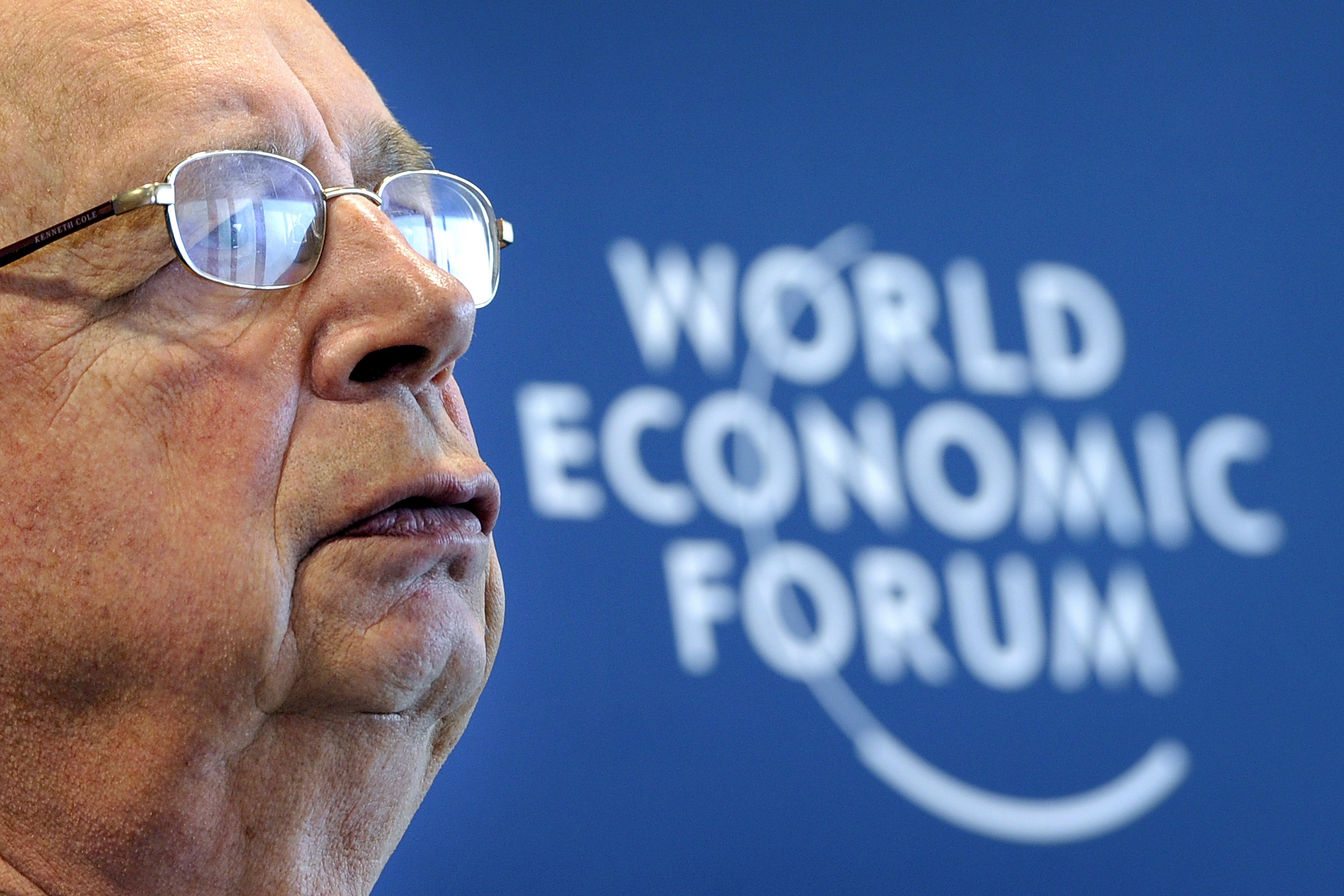
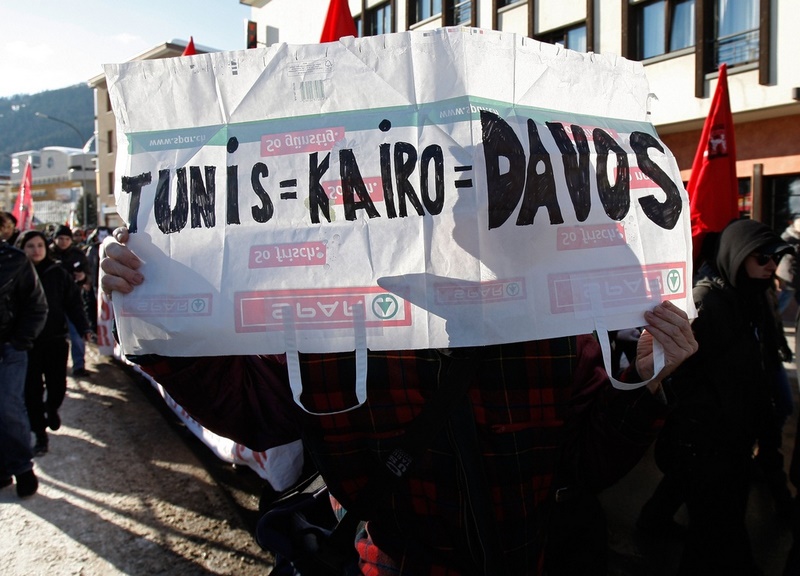
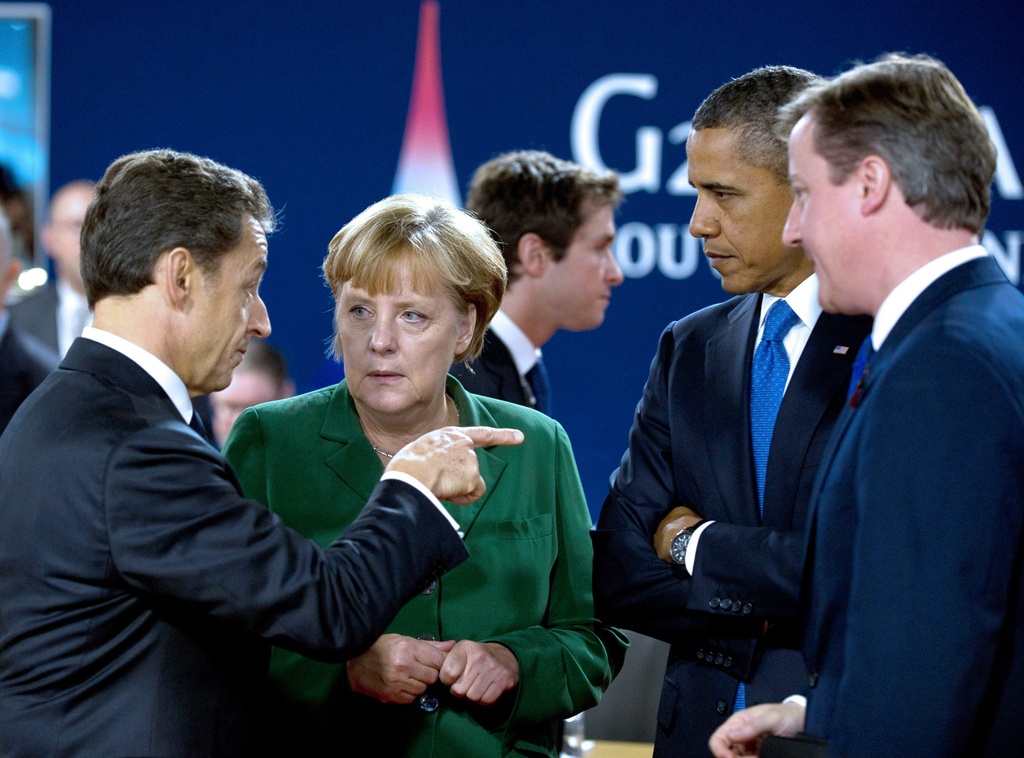
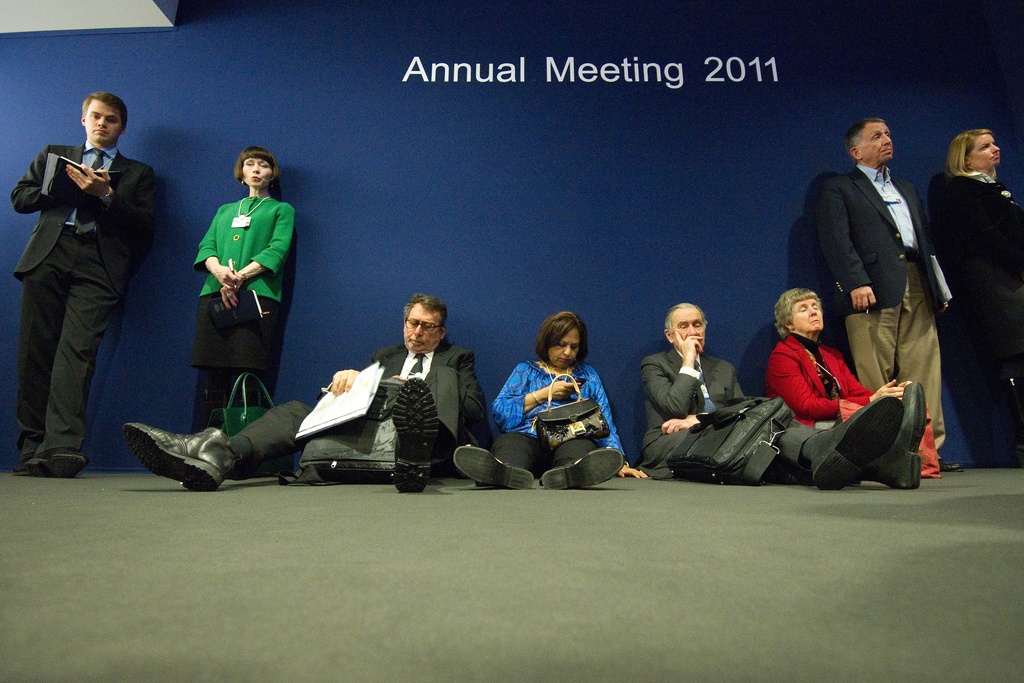
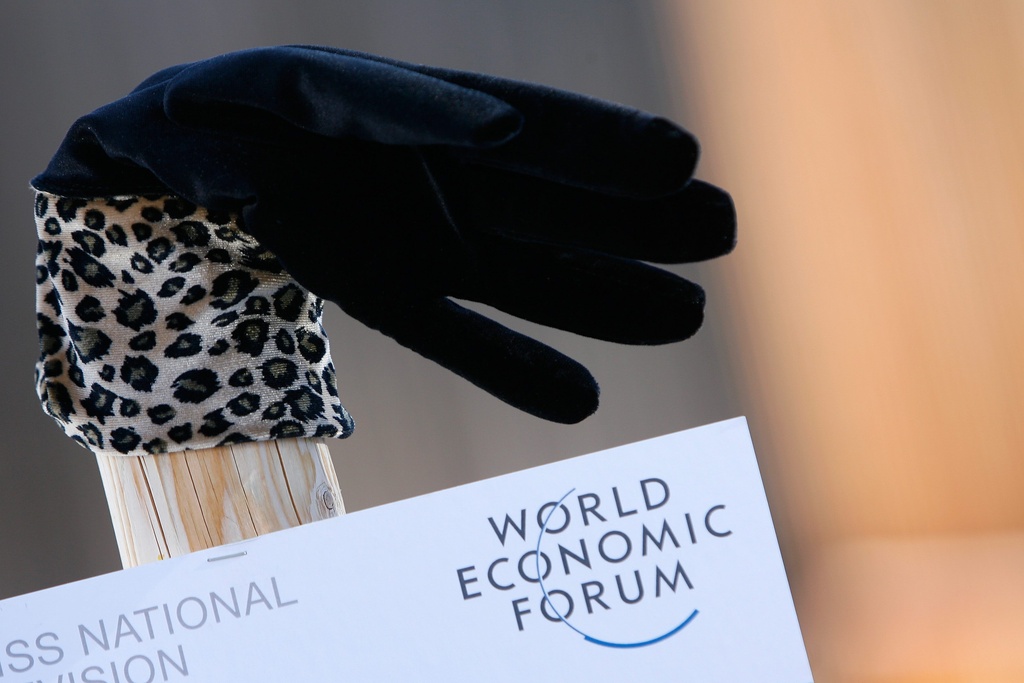
You can find an overview of ongoing debates with our journalists here. Please join us!
If you want to start a conversation about a topic raised in this article or want to report factual errors, email us at english@swissinfo.ch.